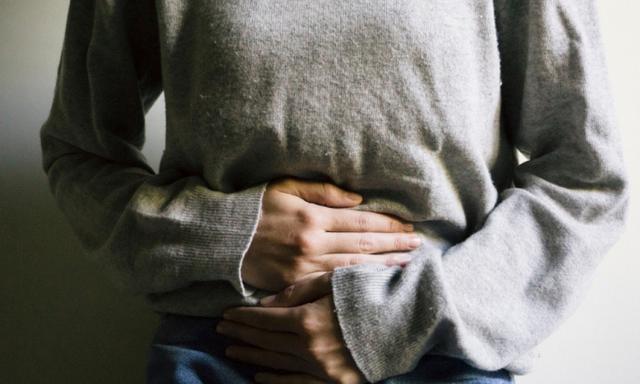What Happens When the Baby Dies Inside You
One of the greatest fears for pregnant women is that their baby will die before it is born.
We've all heard of miscarriages and stillbirths and hope we will never have the experience. But the reality is that with every pregnancy, there is a chance that the baby will not live to grow and develop to full-term. And although this can be almost unbearable to think about, women generally want to know what signs to look out for.
Miscarriage
Miscarriage is the loss of a pregnancy before 20 weeks gestation.
- Most spontaneous miscarriages (75 to 80 per cent) happen in the first 12 weeks of pregnancy.
- Around one in four pregnancies end in miscarriage.
- It's believed that many miscarriages are unreported or go unrecognised because they occur very early in the pregnancy.
Stillbirth
Stillbirth is the birth of a baby who dies before or during birth after a pregnancy of between 20-40 weeks gestation or weighing 400g or more.
According to the National Perinatal Epidemiology and Statistics Unit (NPESU) one baby in every 135 born in Australia is stillborn – this equates to six babies a day.
The word 'stillbirth' varies between different countries.
Want to join the family? Sign up to our Kidspot newsletter for more stories like this.

It is not always easy to know what is going on inside. Source: iStock
RELATED: My stillborn daughter saved my life
How early is too early?
Babies born before 23 weeks of gestation are almost always too young to survive on their own. But by around 26 weeks the (Australian) statistics are very different. Between 23-26 weeks is seen as the "grey zone" by paediatricians and nurses who work in Neonatal Intensive/Special Care Units. This means that babies within this three-week gestational window, though so close to viable age, are still too immature to survive.
Sometimes, and for no obvious reason, a mother goes into premature labour. Despite the best efforts of labour ward staff to stop it, there is simply nothing that can be done. At these times the mother's health and emotional wellbeing take priority, especially when the baby is too young to survive.
Causes of miscarriage and stillbirth
Many times the cause is not known, but foetal abnormality is given as the most common reason. The baby does not develop as it needs to and would not be able to survive if it were born.
Maternal infection; haemorrhage, hypertension and foetal growth restrictions are other reasons for foetal death. Sometimes there are problems with the placenta or umbilical cord, which then affects the baby's blood supply. Check here for more specifics.
Sometimes a baby is born dead at term and there is no obvious reason why. An autopsy is generally performed to determine what the reason could be. An autopsy and pathology testing helps parents and family to understand why their baby died. Sometimes genetic counselling is recommended. This also helps to inform a couple's choices about subsequent pregnancies.
RELATED: Genetic testing during pregnancy

Genetic counselling might be offered. Source: iStock
RELATED: I'm glad I told my young kids about my miscarriage
Signs that a baby has died during pregnancy
- No foetal movements.
- A mother's sense that something "isn't right" or not "feeling" pregnant anymore.
- Vaginal bleeding or uterine cramping.
- Absent heartbeat when listening with a Doppler.
- No foetal heartbeat is seen when a CTG (Cardiotocography) machine is applied to the mother.
- No heartbeat is seen on ultrasound. No signs of movement or life.
Bleeding during early pregnancy does not always mean a miscarriage. And not all women who miscarry will bleed. Every woman and her pregnancy are unique.
Although the end result is the same, there are different types of miscarriage.
Missed miscarriage
A missed miscarriage is when the embryo has died but there are no signs this has happened. The mother does not have any bleeding or other symptoms. Missed miscarriage is generally picked up when she no longer feels pregnancy symptoms.
Blighted ovum
Blighted ovum is when the pregnancy sac has formed but the embryo hasn't.
Ectopic pregnancy
Ectopic pregnancy happens when the embryo implants in the fallopian tubes and not the wall of the uterus.
If a miscarriage is going to happen there's very little which will stop it. But it's important to see a doctor. An ultrasound will detect the cause of the bleeding and if the embryo is still present. Many women who have a miscarriage need to have a curette to clear their uterus.
Mothers can have heavy bleeding and infection after a miscarriage and/or premature labour, so close monitoring is important.
Women who have a negative blood group need to have an injection of Anti D. This is to help protect the next baby from potential blood group complications.
What should you do if you're worried?
Make an appointment to see your maternity care provider.
- See your GP.
- Go to the emergency department of the closest hospital.
- Most women who have had a miscarriage or stillborn baby benefit from counselling.
There are lots of support options:
- Your GP.
- A psychologist, social worker, psychiatrist or counsellor.
- A counsellor who specialises in grief counselling.
- Stillbirthfoundation.org.au
- Sands.org.au
- Pregnancybirthbaby.org.au
Written for Kidpsot by Jane Barry, Midwife and Child Health Nurse.
This article was originally published on 15 February, 2016 and was updated on 5 July, 2021.
What Happens When the Baby Dies Inside You
Source: https://www.kidspot.com.au/pregnancy/miscarriage-loss/when-a-baby-dies-during-pregnancy-how-would-i-know/news-story/f10aa34023abea66305c28e1b721abcd
0 Response to "What Happens When the Baby Dies Inside You"
Post a Comment